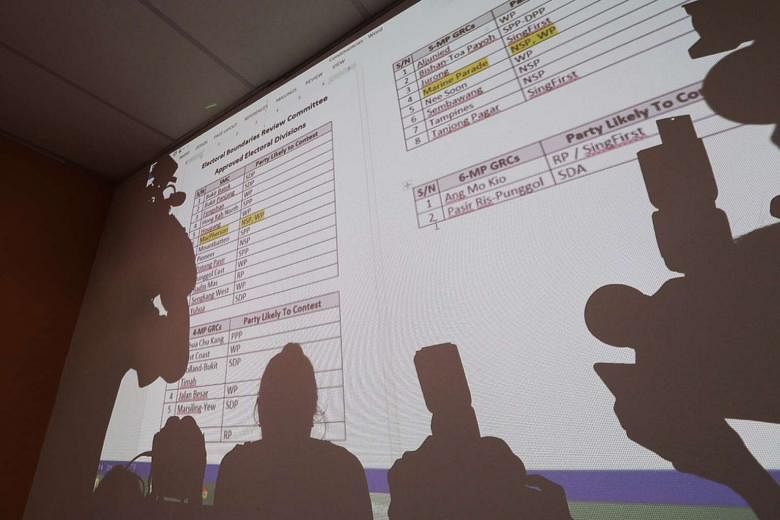It looked too hunky-dory to be true. And so it proved.
The opposition, comprising a disparate mix of election success and failure, not to mention ideologies and personalities, looked to have reached a historic consensus on avoiding three-cornered fights.
Such fights tend to split the vote, tipping the scales in favour of the People's Action Party (PAP), so opposition parties usually try to come to an agreement on overlapping claims on constituencies.
This time around, after two pow-wows, and some to-ing and fro-ing, it seemed like "opposition unity" had finally been achieved, with nine opposition parties likely to contest in the polls in straight fights against the PAP.
Now, this has fallen into disarray. The National Solidarity Party (NSP) has gone back on its decision to leave MacPherson SMC to the Workers' Party (WP), just a week after announcing its decision to relinquish its claim.
It later said on Facebook that calls, e-mail and WhatsApp messages to the WP to sort out their conflicting claims went unanswered: "There is no respect for fellow comrades in the cause."
The NSP's about-turn has led to the resignation of its acting secretary-general Hazel Poa, showing further cracks within the party, which has this year seen a flurry of departures. She said she "strongly disagreed" with the party going back on its initial decision to bow out of MacPherson.
This is the first "resolved" claim that has disintegrated so far, but could more lie ahead?
Over in Bishan-Toa Payoh GRC, there is consensus now, with the Singapore People's Party (SPP) and the Democratic Progressive Party (DPP) planning to send a joint team in to face the PAP.
But just how long the strange bedfellows will stay together is uncertain. Already, there is talk that both parties are each still hoping to secure a larger share of the five-man team, and although they both claim to be cooperating well now, their shared history is murky.
The DPP's secretary-general is Mr Benjamin Pwee, who in 2011 stood on an SPP ticket but lost in Bishan-Toa Payoh GRC. He quit the party a year later, citing differences over the leadership style and direction.
For political scientist Derek da Cunha, the NSP's U-turn in MacPherson hammers home the point that "there is no such thing as 'opposition unity'". "I have never felt that it was a realistic notion, given the vast difference in capabilities and resources across the various parties," he says.
"The WP is the only full-fledged opposition political party. I would use the term 'political party' very loosely for the other entities that project themselves to be in opposition to the PAP."
This is not the NSP's take. A statement by the party says: "This decision made by the central executive committee is final, and reflects our view that maintaining opposition unity requires mutual respect and a spirit of compromise on the part of all parties."
As for the WP - the only opposition party with elected MPs in Parliament - it seems to care less for claims of opposition unity, say observers.
Right after the changes to the electoral map were announced, the WP announced that it would stand in five group representation and five single-member constituencies. And it has stood its ground, refusing to back down on any of its claims on these constituencies.
This is no surprise, observers say, as the WP still remains the most viable and tested opposition party here in the eyes of voters.
Dr da Cunha tells Insight that Singapore might well be headed in the longer term for a consolidated two-party parliamentary system between the PAP and the WP.
"There is a strong possibility that the general election would likely confirm this two-party parliamentary system," he says.

